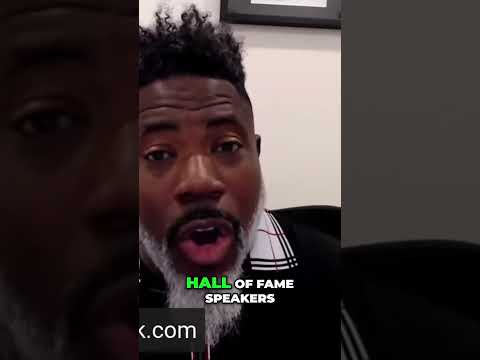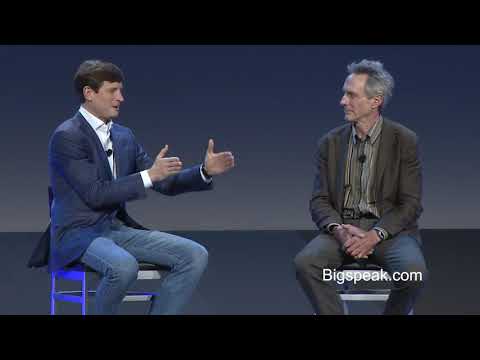Understanding the Essential Role of Professional Speaker Insights
In the realm of public speaking, mastering your message is paramount. For 2024’s trailblazing speakers, it’s not just about delivery but also the depth and resonance of their insights. We’ve gathered profound professional speaker insights to delve into how today’s top professionals harness and share their unique perspectives. Let’s explore how you can elevate your speaking game and connect deeply with your audience.

1. Developing a Core Message with Clarity
One of the main hallmarks of successful speakers like Simon Sinek or Brené Brown is their ability to convey a core message succinctly. Sinek’s ‘Start With Why’ and Brown’s ‘Daring Greatly’ revolutionized how audiences connect with content. These speakers have an uncanny knack for honing their central themes to ensure clarity and impact.

| Aspect | Details |
| Audience Research | – Tailoring content to audience interests and needs – Understanding demographic and psychographic characteristics |
| Communication Clarity | – Speaking clearly and succinctly – Avoiding jargon or complex language that may confuse the audience |
| Engagement Strategies | – Using storytelling and relevant examples – Employing rhetorical devices and visual aids to maintain interest |
| Speech Preparation | – Identifying the speech’s purpose or intent – Aligning speech structure to meet these objectives |
| Presentation Skills | – Developing body language and voice modulation – Practicing to ensure smooth delivery |
| Networking | – Attending smaller conferences and meetups – Leveraging social media platforms like Twitter for opportunities |
| Marketing and Personal Branding | – Regular updates on websites and social media – Showcasing testimonials, video snippets, and past speaking engagements |
| Rhetorical Choices | – Choosing appropriate wording, style, and evidence – Evaluating how these choices reinforce the speech’s purpose |
| Actionable Insights | – Clearly outlining next steps or calls to action for the audience – Making content easy to digest and implement |
| Feedback and Improvement | – Collecting feedback from previous engagements – Continuously refining and enhancing speaking techniques based on feedback |
2. Utilizing Data and Research for Impact
The integration of data and research can elevate a speaker’s message from compelling to irrefutable. Bill Gates often incorporates comprehensive research and statistics in his presentations, making his arguments not just persuasive but also factually unchallengeable.

3. Storytelling: Creating Emotional Connections
A powerful story can be the vessel that delivers a message straight to the heart. Elizabeth Gilbert, author of ‘Eat, Pray, Love,’ uses personal anecdotes to create empathy and provoke thought. This emotional connection becomes a bridge between the speaker and the audience.

4. Utilizing Visual Aids for Better Understanding
Visuals can significantly enhance a speaker’s effectiveness by illustrating points that words alone cannot. Guy Kawasaki, a Silicon Valley icon, is known for his vibrant slides that not only capture attention but also reinforce his messages.

5. Adapting Your Message for Different Audiences
Versatility is key in public speaking. Barack Obama, for instance, tailors his speeches to resonate with diverse audiences, whether addressing corporate leaders, students, or global citizens.
6. Engaging Through Interactive Elements
Interactive elements such as Q&A sessions, live polls, and audience participation can transform a speech from a monologue into a dynamic conversation. Richard Branson is a master at engaging with his audience in this way, often encouraging direct interaction.
7. Fine-Tuning Delivery Techniques
It’s not just what you say, but how you say it. TED speakers like Chris Anderson emphasize the importance of pacing, pausing, and varying vocal intonations to keep the audience engaged.
Innovative Wrap-Up: The Future of Public Speaking
As public speaking continues to evolve, the integration of technology, such as AI-driven analytics, VR presentations, and real-time feedback systems, offers new horizons. For speakers aiming to master their message, staying abreast of these advancements while maintaining authenticity and human connection will be crucial. The pioneers of tomorrow will be those who adapt to these changes while leveraging them to forge deeper, more meaningful connections with their audiences.
Incorporating these professional speaker insights will help you deliver powerful, resonant messages that captivate and inspire your audience. Whether you’re a budding speaker or looking to hire talent for an event, these strategies can elevate every speaking engagement to new heights. Dive deeper into mastering your message with our extensive resources and uncover your true potential as an influential communicator.
Keywords: Professional speaker insights,
Professional Speaker Insights: Master Your Message
Starting Strong
Imagine stepping onto a stage with the same confidence you’d have if you were discussing a simple turkey map europe. That’s the level of comfort and knowledge successful speakers aim for. Speaking professionally isn’t just about having something to say; it’s about saying it well. Interestingly, engaging speakers often kick off their careers by offering free talks, much like a No-Cost Loan, boosting their visibility and confidence simultaneously.
Crafting Your Message
Crafting a magnetic message is kind of like avoiding bad lip Fillers— it requires finesse and precision. Professional speaker insights teach us that not every message sticks, but when it does, it’s a game-changer. The journey is akin to leveling up your character in a game like Ayaka Genshin, where each experience adds to your expertise. A riveting message, much like a motivational paragraph, hooks the audience and leaves them wanting more.
Leveraging Expertise
Speakers don’t just share information; they infuse it with their unique perspectives, gaining career traction akin to a solid Public speaking career boost. It’s fascinating to see how these insights positively transform careers. Whether they’re Marketing keynote speakers or have Keynote speaker expertise in a niche area, they use their wisdom to create a compelling narrative that resonates deeply with their audience.
Fun Facts
Here’s a fun tidbit—Many top speakers started in quite ordinary roles before making it big on stage. It goes to show that with the right insights, anyone can transition from zero to hero in speaking engagements. So, whether you’re seeking to develop your speaking chops or simply enjoy immersing yourself in the captivating world of public speaking, these Professional speaker insights are sure to offer a treasure trove of knowledge and inspiration.

What makes a good professional speaker?
A good professional speaker understands their audience deeply and tailors their message to connect with them. They not only research their topics thoroughly but also consider how their audience will react and interpret the information being shared.
How do you describe an excellent speaker?
An excellent speaker has the ability to convey their message clearly and concisely. They make complex ideas easy to understand and keep the audience engaged with their compelling storytelling and confident delivery.
How do I market myself as a professional speaker?
To market yourself as a professional speaker, start by attending smaller local conferences and meetups. Keep your online presence updated with a website and active social media accounts, and utilize platforms like Twitter and Google to find and share speaking opportunities.
How do you analyze a speaker?
Analyzing a speaker involves understanding their target audience and the purpose behind their speech. Look at how well the speech connects with the audience and evaluate the effectiveness of their rhetorical choices, such as wording, style, and evidence.
What are 7 ways to be a good speaker?
Being a good speaker involves understanding your audience, being clear and concise, practicing regularly, telling engaging stories, using appropriate body language, being passionate about your topic, and continuously seeking feedback to improve.
What are the three essential qualities of a speaker?
The three essential qualities of a speaker are clarity, confidence, and the ability to connect with their audience. These traits help in delivering a memorable and impactful presentation.
What is one word for a very good speaker?
A single word for a very good speaker is “eloquent.” This term reflects someone who speaks in a fluent, forceful, and persuasive manner.
What are positive remarks for the speakers?
Positive remarks for speakers might include comments about their clear delivery, engaging storytelling, insightful content, or the way they connected with the audience. Compliments should be specific to encourage and validate the speaker’s strengths.
How do you compliment a good speaker?
To compliment a good speaker, mention specific aspects of their presentation that stood out to you, such as their clarity, engagement, knowledge, or the way they inspired or moved the audience.
How do you pitch yourself as a speaker?
When pitching yourself as a speaker, highlight your expertise, unique perspectives, and any relevant experiences. Share testimonials, past speaking engagements, and outline what value you can bring to the audience.
How do you become a highly paid speaker?
Becoming a highly paid speaker often requires building a strong personal brand, gaining experience, achieving recognition in your field, and consistently delivering high-quality presentations. Networking and marketing are key components.
How can I be an attractive speaker?
To be an attractive speaker, focus on presenting yourself confidently and passionately. Use strong, engaging body language, connect with your audience through storytelling, and ensure your content is relevant and valuable.
How do you evaluate a good speaker?
Evaluating a good speaker involves looking at their ability to engage the audience, convey their message clearly, and deliver the content in a structured and compelling way. Feedback from the audience can also be very insightful.
How can you tell speaker quality?
Speaker quality can be judged by the clarity of their message, audience engagement, and the impact of their presentation. Effective use of voice, body language, and visual aids also plays a significant role.
How can you tell if someone is a good speaker?
A good speaker is often recognizable by their ability to captivate and maintain their audience’s attention, communicate clearly, and inspire or influence their listeners through their delivery and content.
What determines a good quality speaker?
A good quality speaker, in terms of audio equipment, is determined by clear sound, good range, minimal distortion, and reliability. In terms of a person, it’s their articulation, engagement, and ability to convey a message effectively.
What are the qualities of a good music speaker?
Qualities of a good music speaker include crisp, clear sound, good bass response, balanced frequencies, and the ability to play music without distortion at various volumes.
What makes you stand out as a speaker?
Standing out as a speaker involves having a unique perspective or story, delivering your message with energy and confidence, and connecting with the audience on a personal level. Authenticity and passion are key.
How do you judge a good speaker?
Judging a good speaker includes considering their preparation and understanding of the topic, the clarity and structure of their message, and their ability to engage and interact with the audience effectively. Audience feedback and responses are also important criteria.


















